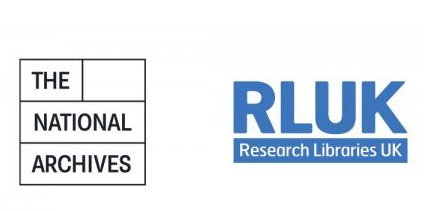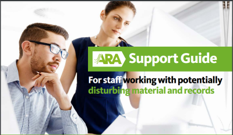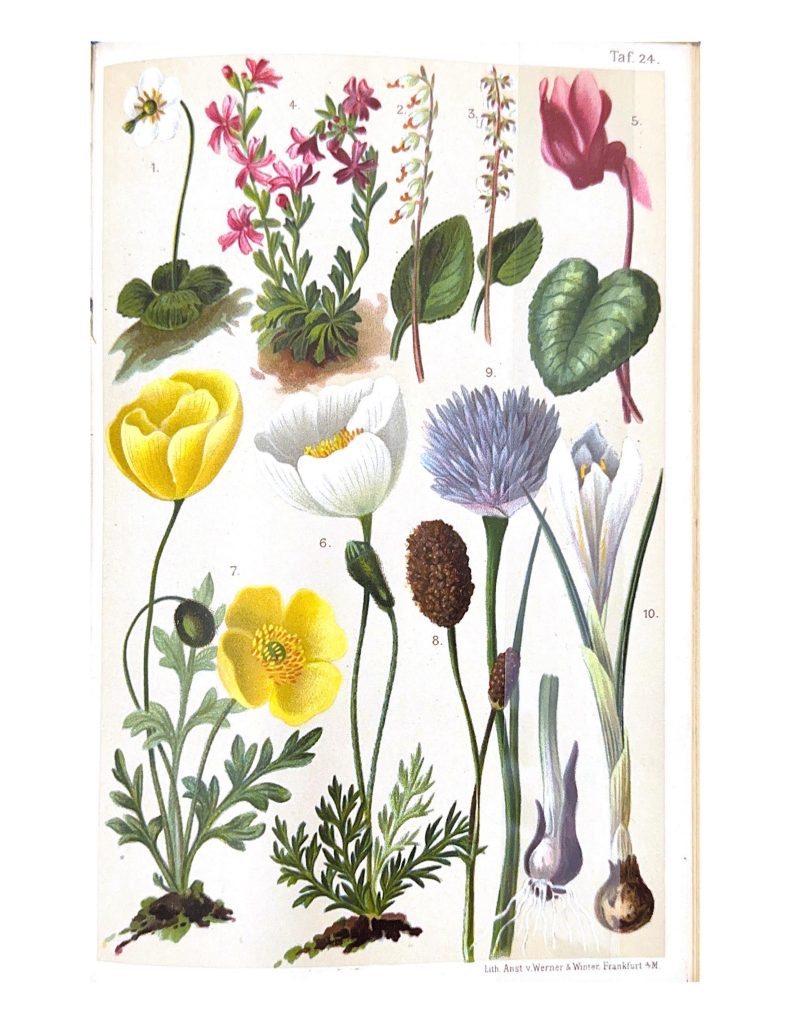My name is Sarah Wood and I work as the Assistant Archivist for the University of Leicester. I am based in Archives & Special Collections and usually sat in the office adjacent to the Special Collections Reading Room (Library basement). Pop in and say hello if you are passing by!
In November 2023 I was successful in my application to The National Archives and Research Libraries UK (RLUK) Professional Fellowship scheme and commenced my Professional Fellowship in February 2024.
The Professional Fellowship is for 12 months, and designed to be completed within my substantial role at the University (equating 10% of my work hours). Professional Fellows are assigned a mentor at a partner organisation and are required to undertake a two week residency there during the course of the year.

As a member of an RLUK institution, I was partnered with The National Archives.
As part of the application process, I developed a professional-practice question which aimed to address a collective challenge faced by research and cultural organisations.
My question was:
‘How can archive services support the wellbeing of staff working with challenging records appearing unexpectedly in collections?’
Definitions
By ‘challenging records’, I mean records which have the potential to emotionally impact an individual’s wellbeing, either temporarily or longer term. Some examples might be instances of vicarious/secondary trauma, generational trauma, or prolonged sadness or distress. One article has referred to these as ’emotionally exhausting records’. 1
For this project, I am narrowing my focus to instances where staff encounter challenging records unexpectedly; where content notices or mitigations are not in place to prepare or support the individual while undertaking their work. Examples of this might be through answering enquiries, appraising a new deposit, cataloguing, digitisation or researching for an exhibition.
Main Objectives
- To raise awareness in archives and libraries of the importance of staff wellbeing when working with challenging records
- To propose recommendations for how services can bridge the gap between sector guidance (such as the Archives & Records Association’s Emotional Support Guides and The National Archives ‘Potential Risks, Impacts and Mitigations’ webpages) and their own organisational support for staff wellbeing


Output
The output of my Professional Fellowship will be a toolkit that can be used by line managers when holding 1-1 discussions with staff. The toolkit will include the following:
- Guidance on holding initial and follow-up discussions with staff who are working with challenging records
- Templates to be used for individual discussions
- Logbook for recording concerns raised in discussions and points of action required
Note: The toolkit is designed to assist line managers with initial conversations and aid them with signposting to the available support services. It is not suggesting that line managers act as counsellors or therapists. Neither should it be viewed as a replacement for the role of qualified health professionals.
Approach to the project
I have divided my project into three phases:
- Phase 1: Directed online learning and literature searching
- Phase 2: Delivering introductory workshops and conducting interviews with a small number of participants
- Phase 3: Analysing interview data; creating the toolkit; responding to feedback
Phase 1 has also included completing the self-directed online toolkit ‘A Trauma Informed Approach to Managing Archives’, available via the Australian Society of Archivists website.
Reflections
My aims and objectives have changed slightly from the original application (as is the nature of research!), but I thought it might be useful to outline my experience of the Professional Fellowship so far and then update you as I progress!
Reflections: Trying to stay on topic!
An initial challenge was defining the project and limiting my research area. A one-year Fellowship comprising 10% of my work hours is not really that much time!
I discovered that the more I read, the more avenues there were to explore so I had to keep reminding myself to remain focused and stick to the research question.
My literature searching and conversations with staff working in archives has brought to the surface additional challenges faced by the sector in relation to wellbeing. In particular, instances relating to interactions with members of the public and archive users who have been affected by challenging records during their visit.
I will address any themes which fall outside of the immediate scope of the project in the toolkit’s introduction, acknowledging their importance but recognising that the toolkit is unable to address these scenarios directly. Readers will be encouraged to consider these additional challenges and the need for further improvements in this area.
Reflections: The highs and lows of ethics approval
Before I could conduct any interviews I needed to obtain ethics approval from my institution.
I found completing the ethics application to be challenging as this was a new learning development and a process I was not familiar with.
The application was a lengthy process which comprised of an online application form and required the completion of various risk assessments; a privacy notice; interview questions; consent form and participant information sheet.
Although challenging, undertaking this process has helped me to devise a robust plan for the scheduled interviews and encouraged me to create important paperwork which will reassure participants that their data will be thoroughly protected. It has also helped me to hone the project and decide what data I actually want to collect from the interviews.
Reflections: An opportunity for professional development
Challenges aside, the Fellowship has helped further my professional development. Alongside training activities outlined in my CPD plan (a requirement for the application), the nature of my project has enabled me to develop in the following ways:
- Learning a new research methodology (interviews)
- Research project management
- Networking and delivering workshops
- Writing project reports
- Working with a different department in the University (Occupational Health)
Looking ahead
I am now just over half-way through the Professional Fellowship, and have recently completed my interviews. These interviews, alongside the identified literature and sector guidance, will be used to shape and inform the toolkit.
Stay tuned for my next blogpost where I will continue to update you on my Professional Fellowship!
In the meantime, I leave you with this vibrant floral illustration, which features in our Special Collections…

- ‘Not Just My Problem to Handle: Emerging Themes on Secondary Trauma and Archivists’, Journal of Contemporary Archival Studies, Vol.6, 2019 ↩︎

 Subscribe to Sarah Wood's posts
Subscribe to Sarah Wood's posts